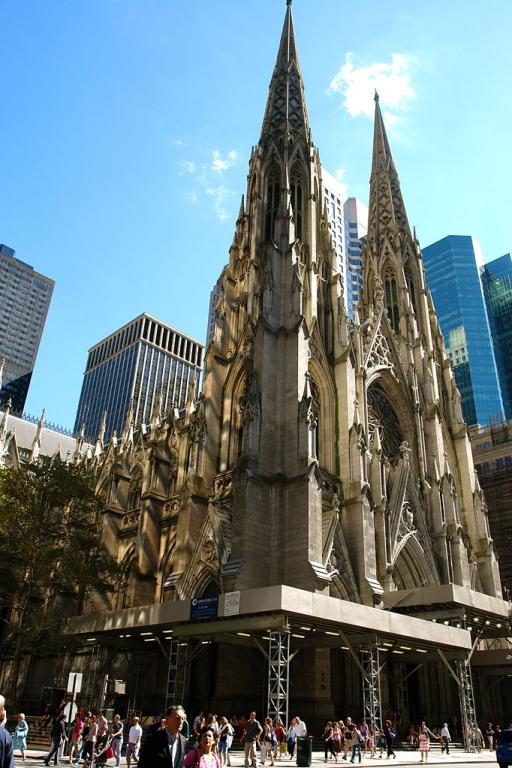
(Wikimedia Commons public domain photograph)
We’re just back from a “patriotic service” held over at Utah Valley University under the auspices of the Provo Freedom Festival. It was thoroughly enjoyable, with good music from the One Voice Children’s Choir and a band from the Utah National Guard, and with a very well thought-out and well-delivered speech on the First Amendment from a high school student whose name, unfortunately, I didn’t get down.
The dignitaries were out in force. Governor Gary Herbert was there, as well as Senator Mike Lee and former Senator Orrin Hatch and Elders Craig Christensen and Jack Gerard of the Seventy (and possibly one or even two more that I didn’t see).
Bishop Oscar Solis, of the Catholic Diocese of Salt Lake City, gave the invocation. Elder Christensen offered the benediction.
Elder Quentin L. Cook, of the Quorum of the Twelve Apostles of the Church of Jesus Christ of Latter-day Saints, gave an extraordinarily gracious and friendly introduction to the evening’s keynote speaker, Timothy Cardinal Dolan, the Archbishop of New York. (I’m absolutely delighted at the excellent relationship that has developed over the past few decades between my church and the Roman Catholic Church. It’s altogether remarkable to have the cardinal-archbishop of New York here in Utah.)
Cardinal Dolan delivered some very stirring remarks that were well received by the audience. I tried to take notes, but my pen malfunctioned and, anyway,he was speaking too rapidly for me to do his speech justice. But perhaps I can give some idea here, to be supplemented later (I’m assuming) by media reports:
He spoke of religion as a driving force of various “ennobling,” “liberating,” “unshackling” movements in American history and as the foundation of all other liberties. It was, he said, no coincidence that freedom of religion is the first liberty guaranteed in the First Amendment to the Constitution of the United States; without freedom of religion, our other freedoms are in jeopardy. He cited Thomas Jefferson as contending that our rights will not be secure unless they are viewed as God-given. He also alluded to Alexis de Tocqueville, but I didn’t get the notes down in time.
Among the religion-driven movements to which Cardinal Dolan briefly alluded were (a) the American Revolution itself, for which the Great Awakening of the 1730s and 1740s prepared the ground; (b) abolitionism, which was to a considerable extent led by such religious figures as William Lloyd Garrison, Lyman Beecher, Ralph Waldo Emerson, and others that he mentioned too rapidly for me to record their names; (c) the “Age of Reform,” with people like William Jennings Bryan; and (d) the American civil rights movement, which was spearheaded by the Rev. Martin Luther King and other southern black preachers. (Cardinal Dolan described Rev. King’s famous Letter from Birmingham Jail as a classic text on religious liberty.)
Religious freedom, he said, isn’t merely freedom from oppression but the freedom of religious believers to engage the public square in ways that are consistent with their beliefs.
He mentioned two principal contemporary threats to religious liberty in America. The first, he said, is secularism. Some secularists are willing to tolerate religious belief as long as it’s regarded merely as “an eccentric private hobby” and doesn’t manifest itself in public life. (At least one such secularist frequently comments on this blog.) The other threat is intrusive government. The state, he said, should not presume to dictate or define the ministry of the church. Government should protect our religious freedom and, otherwise, leave us alone on religious matters.
(I should mention at this point that Cardinal Dolan was interrupted several times by enthusiastic applause. Including that of y’r obdt servant.)
Along the way, Cardinal Dolan lamented a recent remark by a Catholic politician in Washington whom he didn’t identify. “My church,” the politician said (I’m paraphrasing the Cardinal’s paraphrase), “needs to get over this conscience thing.” “No we don’t,” declared Cardinal Dolan. “No. We can’t.”
I liked his remarks very much.











